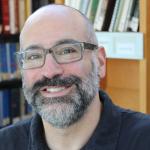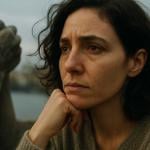YESOD
The process of Yesoding is emptying and filling that part of our soul that connects Nefesh (our physical part of the soul) to Ruah (people-interactive part of the soul) and Neshamah (the part of our soul that is our private G link).
Eastern religion and philosophy speak of emptying ourselves. They speak of no-mind. The usefulness of a cup is in its emptiness, goes the Zen proverb. Since we Jews are a Middle Eastern religion and philosophy, we too speak of the meaning of emptying. And yet for us, the usefulness of a cup is also in the filling. Yesod is that Yin and Yang of empty/fullness and the flow between.
Memory is a powerful tool for the soulful process of emptying and filling. When an event happens in our lives it is imprinted on our mindful hard drive. We do not always access it. Sometimes we don’t pull the memory of the event into our RAM for years. When we do pull it up into the RAM from the hard drive of our life, our mind interacts with the memory. When we resave, we do so with all the changes that our RAM has made even without a conscious keystroke. Our Yesod overwrites and returns the memory to our hidden hard drive. Each time we access the memory, we change our memory of the event. That which was is mingled with what might have been, what we wished would have been or what we wished would not have been. Our unconscious mind and our soul become secret editors. Therefore, reflecting on our past, changes our past in ways that never enter our consciousness until retrieved and viewed as the original memory.
It is not just the facts; it is how we remember, how we unconsciously edit our life stories that then becomes our Yesod of empty fullness or full emptiness.
Memories are our teachers. They are not the history teachers or fact checkers; they are the soul council of our Yesod. By climbing down the Seforitic tree in a mindful way, our memories are refreshed and returned, emptying and refilling our Yesod center.
Hesed of Yesod
What loving memories inform your being? Sharing Shabbat dinners with my parents as a child morph into sharing Shabbat dinners with my wife/partner/friend, my children and my grandson. I remember, as a child, vying with my brother to see who got to cut the Hallah or say the Kiddush (singing was not an option for my family). Then, sitting at the table with my own kids, I would flash back on my childhood and, more than once, I would become a little misty as I watched the traditions flow in front of my eyes. I watch my wife and daughter chant the blessing after lighting the candles and my son chanting the Kiddush. I smile to think how my father would have been so proud of their commitment and amazed by their voices. It is just a sweet loving memory that warms my soul. It is the Hesed ladle that fills my empty Yesod.
Gevurah of Yesod
Gevurah of Yesod is that area of discipline that guards our being. It is the judgment that seems natural to us. Gevurah encourages us to the self-discipline which is necessary to empty our cup and make it useful in the filling. Gevurah empties the Yetzer HaRah, spirit robbing cholesterol and mindless calories from our Yesod cup. In my memoryscape for Yesod, my daughter comes to mind. She is the one that keeps coaxing and cajoling me to finish this little work on the Sefirot counting of the Omer. If I could internalize her gentle nudging it would reside in my Yesod hard drive in the folder marked Yesod Ram cleaner: Gevurah.
Tiferet of Yesod
Balance is such a wonderful thing, especially if that balance comes from within. That is the Tiferet beauty of Yesod. What memories bring you to balance? I think back to growing up with a set of parents who, in their own very different approaches to compassion taught me a sense of balance. We talk of the feminine and masculine aspects of life but that usually refers to stereotypes and I prefer not to fall into that trap. Growing up, if I wanted a hug or a logical answer to life’s challenges, I would turn to my father. I still remember those great comforting hugs. And there was always a rather one-sided discussion laying out the best possible course of action. Arguing with my father was fruitless, he could always logic me to his point of view and he was usually right. Sometimes it was frustrating but most of the time there was a comfort in the straightforward path that he offered. My mother, on the other hand, was the kitchen council. I would sit with her for hours telling her my whims and woes. She would listen and ask some good questions and I would come away with a feeling that I had been heard in a non-judgmental manner and that I had what it takes to handle life’s vicissitudes. I think of them when I wish to regain the Balance which is Tiferet of Yesod.
Netzah of Yesod
I love the line that I heard so long ago; “Doing it makes it happen!” It could be found in Gevurah but then it would be waiting in potential. Netzah is the actualizing of Gevurah. What memories jump to the fore when you think of Netzah action? Close your eyes and, to quote the great philosopher, Bruce Lee: “Don’t think! Feel!” What bubbles up? I feel an experience some 45 years ago. My family spent some time on a ranch one vacation. We rode horses daily there. My brother was thrown from his horse, a rather terrifying experience for one so young. He could have given up or cried or pouted. But he did not. He climbed right back on the horse. Metaphors and similies have their origins in important teachings sometimes. The rest of the time we were on that ranch, the call rang out for Michael (now Rabbi Michael Davis) to remain in charge of his mount: “Kick him Mikey!” Two things about the story: Number one; climbing back on the horse when you are about 10 years old is an act of courage beyond description. Number two; we never call him Mikey anymore. I look at my children who are taking risks and creating new realities with their lives and I am moved by the power and lessons of their Netzah and I take those lessons into my soul, as Ronin heads off to Columbia University to study Social Work and Talia heads to Israel to study in a woman’s Yeshiva. I am impressed with the active Netzah that fills their Yesod.
Hod of Yesod
How many times have we heard the cliché; “Stop to smell the roses!” That is the Hod ladle of our Yesod. Do you have memories of sitting in a field watching the wildflowers bending gently around a breeze? Or is your Hod of Yesod moment a time in Davenin or meditating when, just for a moment, we are lost in the moment. I have found those sacred points when doing gives way to being and becoming. I have found them in the desert and in a diner, in a sweat lodge and in a shul, leaning back against a tree filled with the smells and sounds and sights of nature or in Temple filled with the smells and sounds and sights of my tribe chanting and yearning. I have found them in the embrace of my belovedest and in the embrace of the gathered waters of a Mikvah. As I am held in the arms of my partner or in the arms of the flowing waters or drifting breeze, my Hod ladle empties the stale brew from my Yesod cup.
Yesod of Yesod
Nu, and once my Yesod it is empty what do I do? What if, just for a moment we do nothing? Try breathing out all of the air from your lungs. Empty the lungs as much as you can. Then simply wait. We can’t do it for long of course and in the beginning there is a strong pull to panic. But with practice we can reach a moment of quiet like no other. The meditative usefulness of Yesod is in its emptiness. For a quiet moment there is nothing there. Maybe we reach a point of such oneness that there is no difference between being and not being. It is as close as we can get in this life to Yehidah, the oneness that is beyond inclusive and exclusive, beyond here and there, you and me, oneness and otherness. There is no I or thou, there is no we to become one. There is only… is.
Malchut of Yesod
We must return from the totality of one which is Yesod of Yesod. It is not a place where we can reside. We must refill the Yesod cup, and a dose of reality is just what the Rabbi ordered. Malchut is the reality that brings us back, that fills our Yesod. The reality of memory which is our internal, unique and individualized reality can be a warm drink on a cold night for the Yesod. The reality of the world and its challenges can be a cold shower for our Yesod, to wake us up and get us going. Maybe we need to balance our Yesod with the warm memories and cold reality. And in finding that balance we are ready to hear our sacred council remember our dreams and seek our visions as we enter the world renewed.
Click here to see Encountering the Omer, week 5 – Hod
Click here to see Encountering the Omer, week 4 – Netzach
Click here to see Encountering the Omer, week 3 – Tiferet
Click here to see Encountering the Omer, week 2 – Gevurah
Click here to see Encountering the Omer, week 1 – Hesed
(Originally posted at Rocky Mountain HAI)










